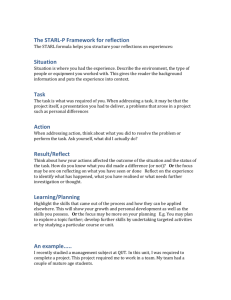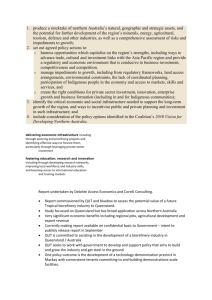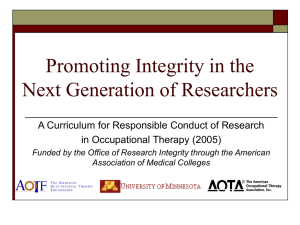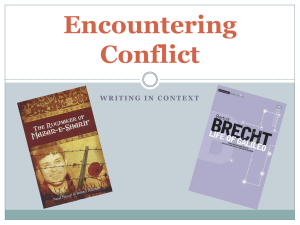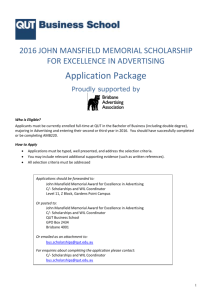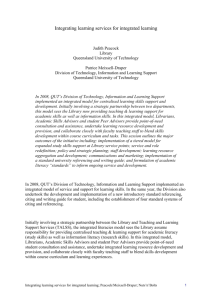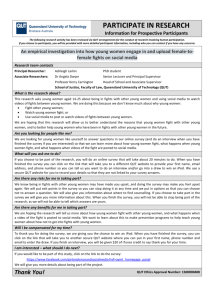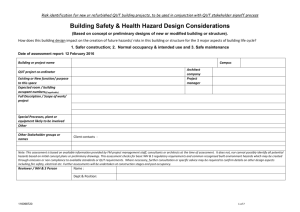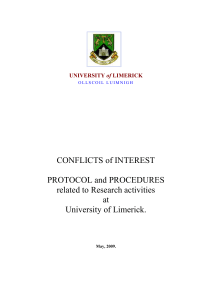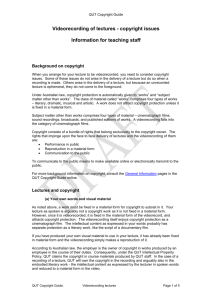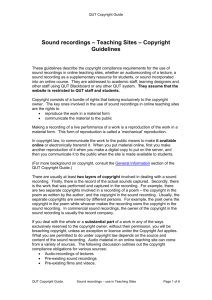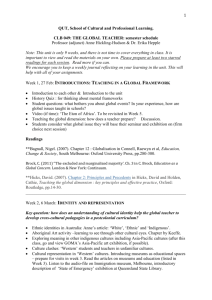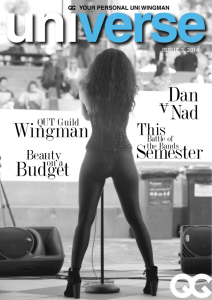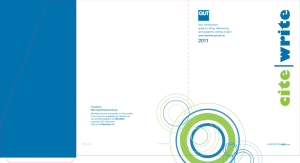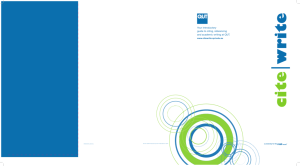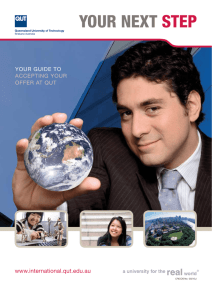QUT Research Conflict of Interest - Office of Research Ethics and
advertisement
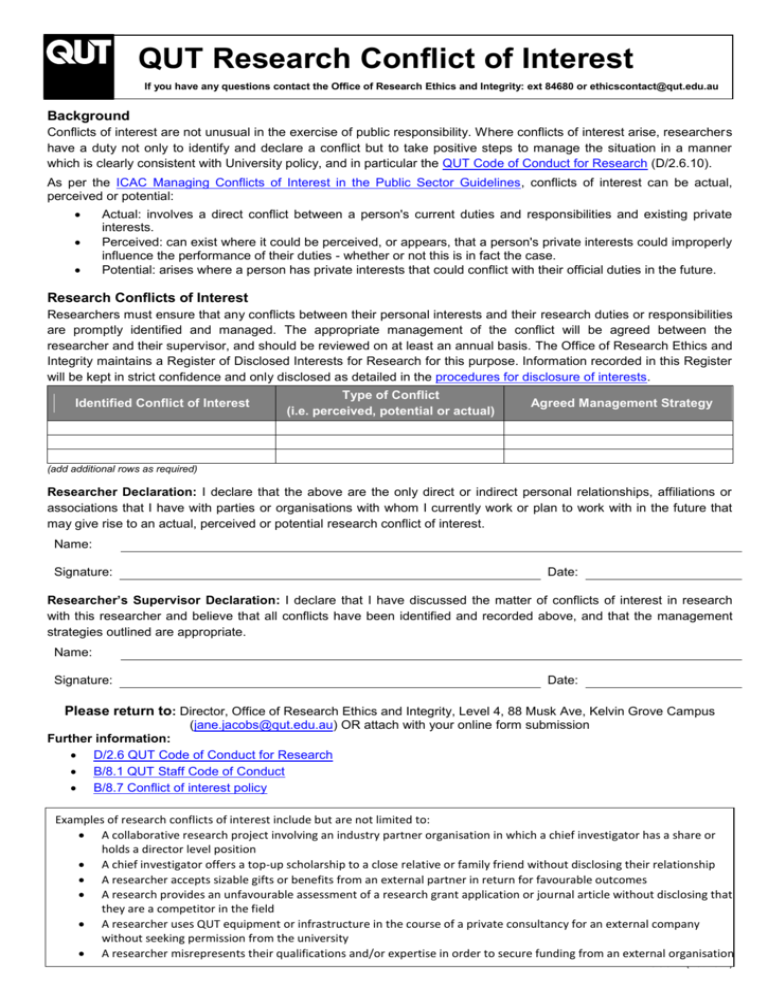
QUT Research Conflict of Interest If you have any questions contact the Office of Research Ethics and Integrity: ext 84680 or ethicscontact@qut.edu.au Background Conflicts of interest are not unusual in the exercise of public responsibility. Where conflicts of interest arise, researchers have a duty not only to identify and declare a conflict but to take positive steps to manage the situation in a manner which is clearly consistent with University policy, and in particular the QUT Code of Conduct for Research (D/2.6.10). As per the ICAC Managing Conflicts of Interest in the Public Sector Guidelines, conflicts of interest can be actual, perceived or potential: Actual: involves a direct conflict between a person's current duties and responsibilities and existing private interests. Perceived: can exist where it could be perceived, or appears, that a person's private interests could improperly influence the performance of their duties - whether or not this is in fact the case. Potential: arises where a person has private interests that could conflict with their official duties in the future. Research Conflicts of Interest Researchers must ensure that any conflicts between their personal interests and their research duties or responsibilities are promptly identified and managed. The appropriate management of the conflict will be agreed between the researcher and their supervisor, and should be reviewed on at least an annual basis. The Office of Research Ethics and Integrity maintains a Register of Disclosed Interests for Research for this purpose. Information recorded in this Register will be kept in strict confidence and only disclosed as detailed in the procedures for disclosure of interests. Identified Conflict of Interest Type of Conflict (i.e. perceived, potential or actual) Agreed Management Strategy (add additional rows as required) Researcher Declaration: I declare that the above are the only direct or indirect personal relationships, affiliations or associations that I have with parties or organisations with whom I currently work or plan to work with in the future that may give rise to an actual, perceived or potential research conflict of interest. Name: Signature: Date: Researcher’s Supervisor Declaration: I declare that I have discussed the matter of conflicts of interest in research with this researcher and believe that all conflicts have been identified and recorded above, and that the management strategies outlined are appropriate. Name: Signature: Date: Please return to: Director, Office of Research Ethics and Integrity, Level 4, 88 Musk Ave, Kelvin Grove Campus (jane.jacobs@qut.edu.au) OR attach with your online form submission Further information: D/2.6 QUT Code of Conduct for Research B/8.1 QUT Staff Code of Conduct B/8.7 Conflict of interest policy Examples of research conflicts of interest include but are not limited to: A collaborative research project involving an industry partner organisation in which a chief investigator has a share or holds a director level position A chief investigator offers a top-up scholarship to a close relative or family friend without disclosing their relationship A researcher accepts sizable gifts or benefits from an external partner in return for favourable outcomes A research provides an unfavourable assessment of a research grant application or journal article without disclosing that they are a competitor in the field A researcher uses QUT equipment or infrastructure in the course of a private consultancy for an external company without seeking permission from the university A researcher misrepresents their qualifications and/or expertise in order to secure funding from an external organisation Version 2 (Nov 2011)


